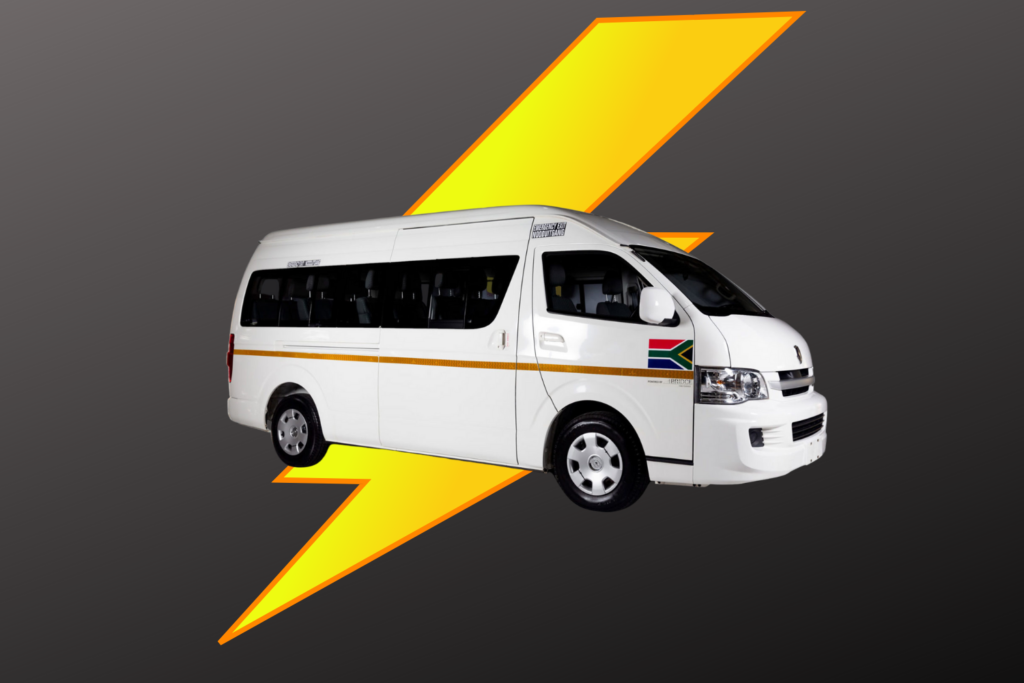The entire world has been feeling the effects of fuel prices lately, and South Africa is no exception. It’s due to a number of factors — the current war in Ukraine, corruption, oil shortages, and corruption again. South Africa is looking for a way around these prices, and it may have a solution – an electric minibus taxi.
Yesterday, a team of South African companies and engineers announced that they were investigating the viability of an electric minibus taxi.
And it makes sense too – South African commuters are, largely, reliant on taxis. While people with their own cars consider taxis a scourge, to those without transport, a taxi is essential. Over 70% of South Africans using transport use a taxi for everyday getting around.
Electric Avenue

The idea for an electric minibus came long before petrol prices started going through the roof. Five years ago, a company called GoMetro began collecting data relating to taxi operations across the country. GoMetro has since formed a team to get an electric minibus demonstration ready. If all goes to plan, we should see a working demo of the vehicle as early as January 2023.
On the team (this feels like the start of an Avengers movie) are companies GoMetro, MiX Telematics, HSW, and ACDC Dynamics, along with a few brains from Stellenbosch University’s Faculty of Engineering.
This group of engineers plan to conduct extensive tests in and around Stellenbosch to see whether an electric taxi could work in the South African market. Potential vehicles have already been identified. The first of these test models should arrive in early 2023 – which is when tests begin.
Testing Testing 1,2,3

To test the practicality of these EVs, they will be put directly in the hands of taxi owners. And a few passengers too.
“Taxi drivers and owners are very interested and intrigued by the idea of an electric minibus taxi, and are constantly asking us when the first electric minibus taxi will arrive on our shores,” says Justin Coetzee, GoMetro CEO.
“We have built valuable relationships with a large number of taxi associations, and the ever-increasing fuel price is a massive concern among owners, drivers, and riders alike, as there does not seem to be any relief in sight. The industry has long acknowledged that business as usual will not suffice – and that change is required, especially after the effects of COVID-19.”
Through the tests, the team determine which model of minibus would suit South Africa. Not only is each vehicle being tested, but so is the vehicle and motoring industry in SA.
The team’s eventual goal is to make the government take electric vehicles seriously in South Africa.
Adopting a new approach in South Africa
Once the team is satisfied with its tests, it will go on an ‘educational roadshow’ to the nine provinces around the country. This trip will highlight the importance of electric vehicles to the country. And, if it works, the government may begin taking implementation seriously.
South Africa has been slow on the uptake when it comes to electric vehicles. This project could be the next change needed to kick the country into gear.
Companies around SA have been experimenting with electric vehicles lately, the most recent being Woolworths. The popular retailer will soon replace nearly 70% of its entire delivery fleet with electric vans.




